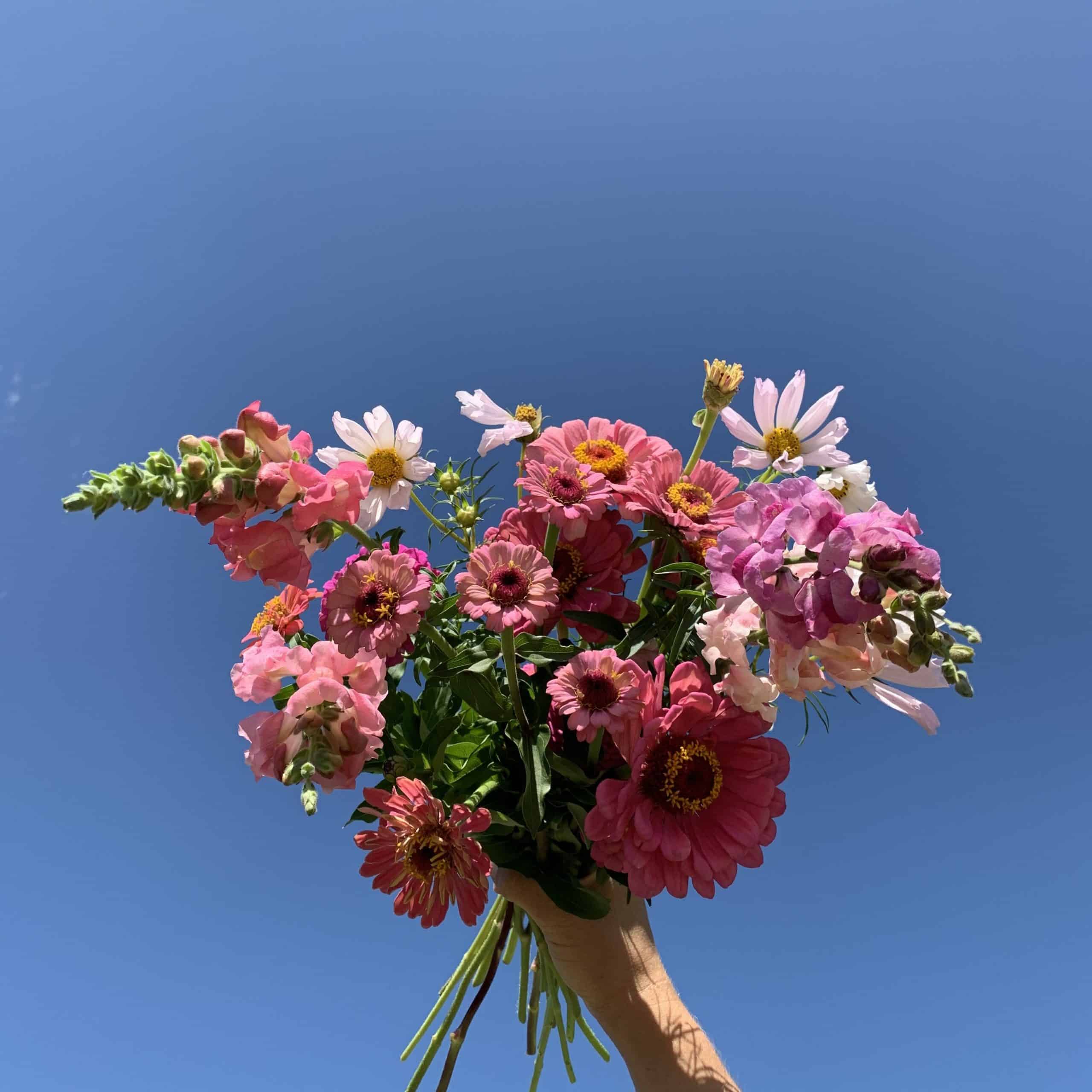The Necessity of Flowers for the Soul
Phyllary Farm is a non-certified organic flower farm located in Kalispell that aims to steward the land and connect the community through positivity.
This year is Phyllary Farm’s first year in production, but Althea Hogle, the owner and one-woman operator, has been dreaming of opening her flower farm since she was a child surrounded by her botanically-inclined family.
I drove to Kalispell to meet Althea and to take a tour of Phyllary Farm. As I drove down her gravel driveway, I was surprised to find it was nestled lovingly on the bank of the Flathead River. Althea met me at the end of the driveway with a big smile on her face and a small bouquet of flowers from her first harvest ever!
Being that it’s still early spring in northwestern Montana, everything was still coming along. Althea had just put in her irrigation system and was potting up many of the flowers she started by seed in the last months. The inside of her high tunnel smelt like summer: wet dirt and flowers. We sat between rows of freshly bloomed tulips and daffodils and chatted about Phyllary Farm.

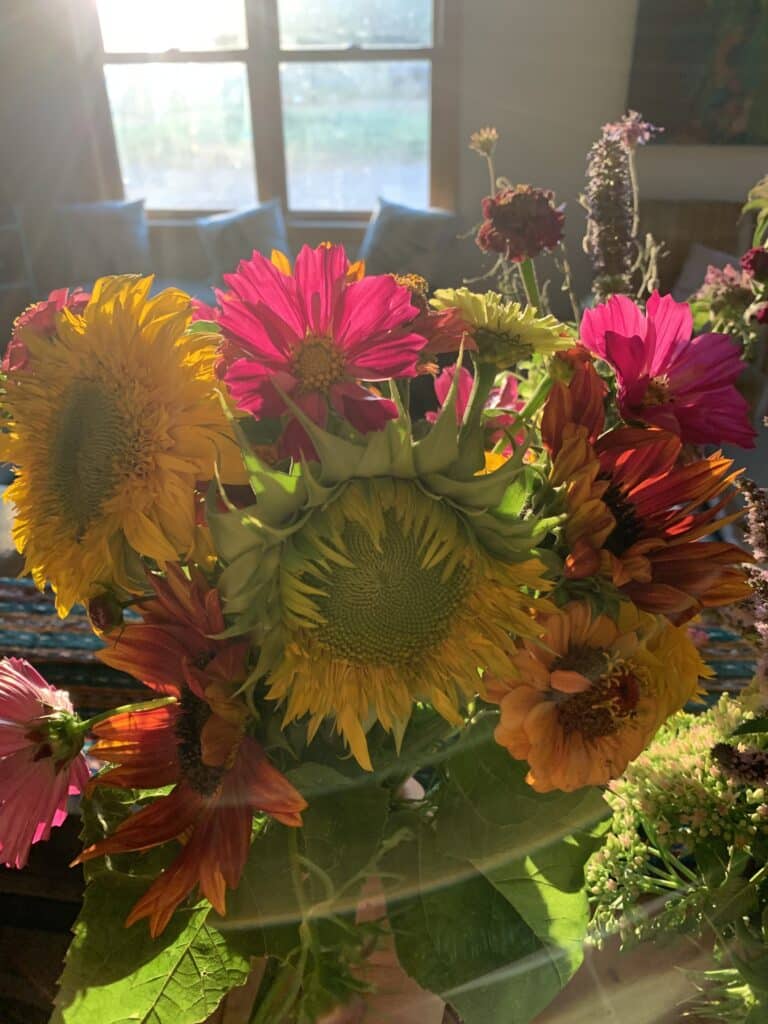
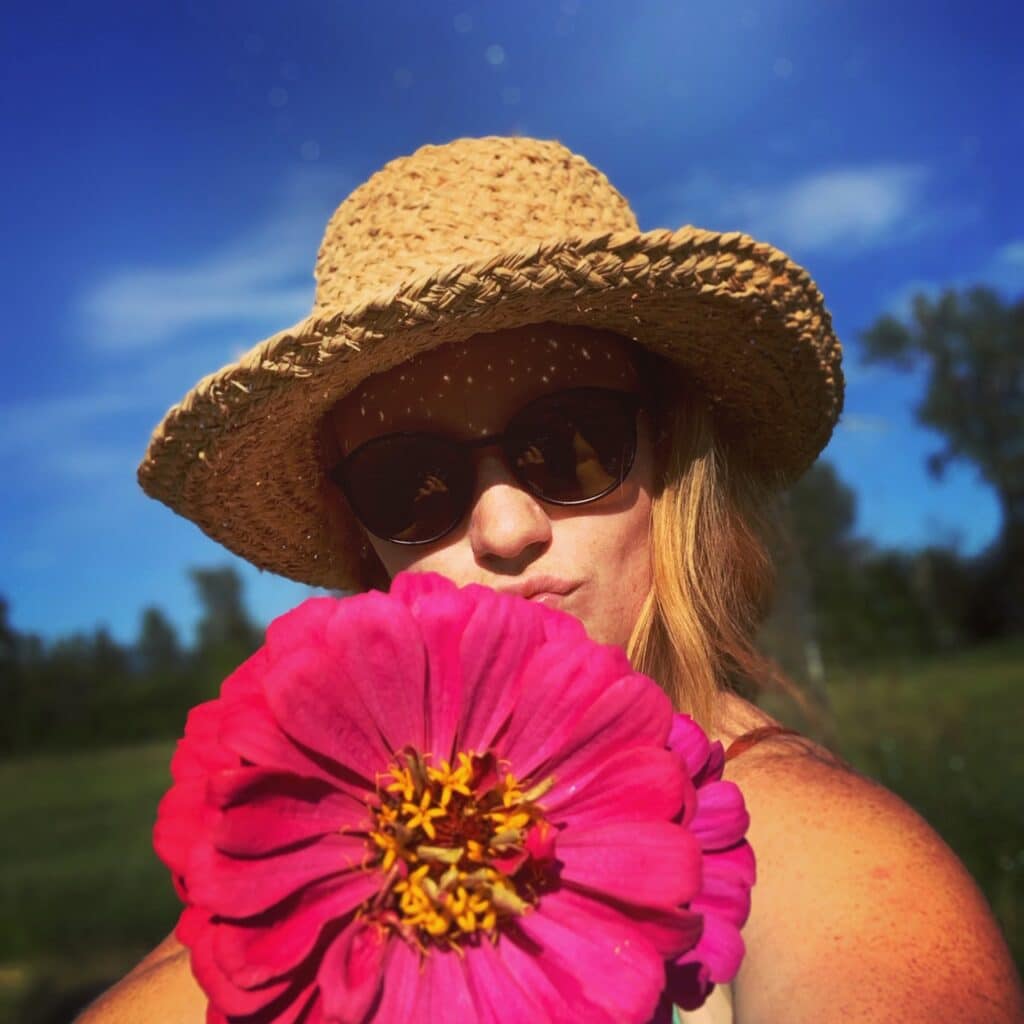
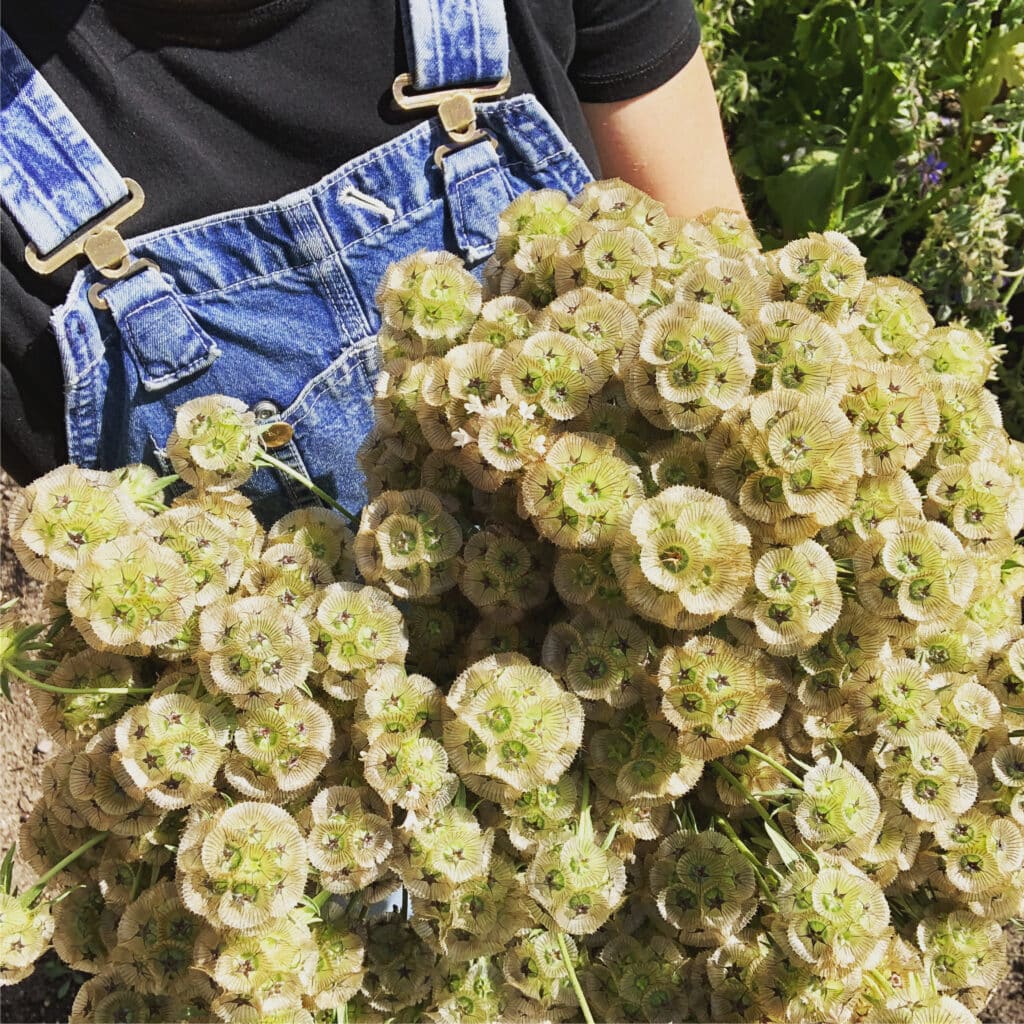
You may be wondering: what exactly is a ‘phyllary’? Well, I was wondering too, so that was the first question I asked Althea. A phyllary (pronounced phil-a-ree) is an important botanical feature of the Aster flower family. The greatest example: the sunflower. The impressive head of the sunflower is held together by a grouping of bracts called phyllaries! A phyllary is one part of the whole, and without it we would not be able to enjoy the splendor of the sunflower. It is Althea’s hope that Phyllary Farm can act as a bract, if you will, for her community, to lift each other up so we may be able to shine as bright as the fabled sunflower, together.
Although Phyllary Farm is not Organic Certified, they don’t use chemical fertilizers, pesticides, or preservatives because of their negative impacts on our precious land.
Althea explains, “It’s pretty simple: The flowers don’t need pesticides, herbicides, or fungicides. My soil doesn’t want it and neither do I. By using bio-intensive methods such as composting, cover crop rotations, no till practices, companion planting, etc, we can produce an abundance of blooms in a minimal area, all while promoting biodiversity and maintaining soil fertility.
I asked Althea how she decided to grow her flowers and run her farm in this way. She told me that while studying agroecology at Montana State University, she worked in the wedding industry where saw the value in the local ‘slow flower’ movement.
“The bulk of the cut flower industry is centered around large scale farms that import their flowers to the United States. These farms are heavily reliant on chemicals and insane water use. Wages are low and flowers travel thousands of miles to get to us in the dead of winter. By buying locally grown flowers, we reduce our carbon footprint, contribute to the local economy, and less chemicals are put into our soil!”
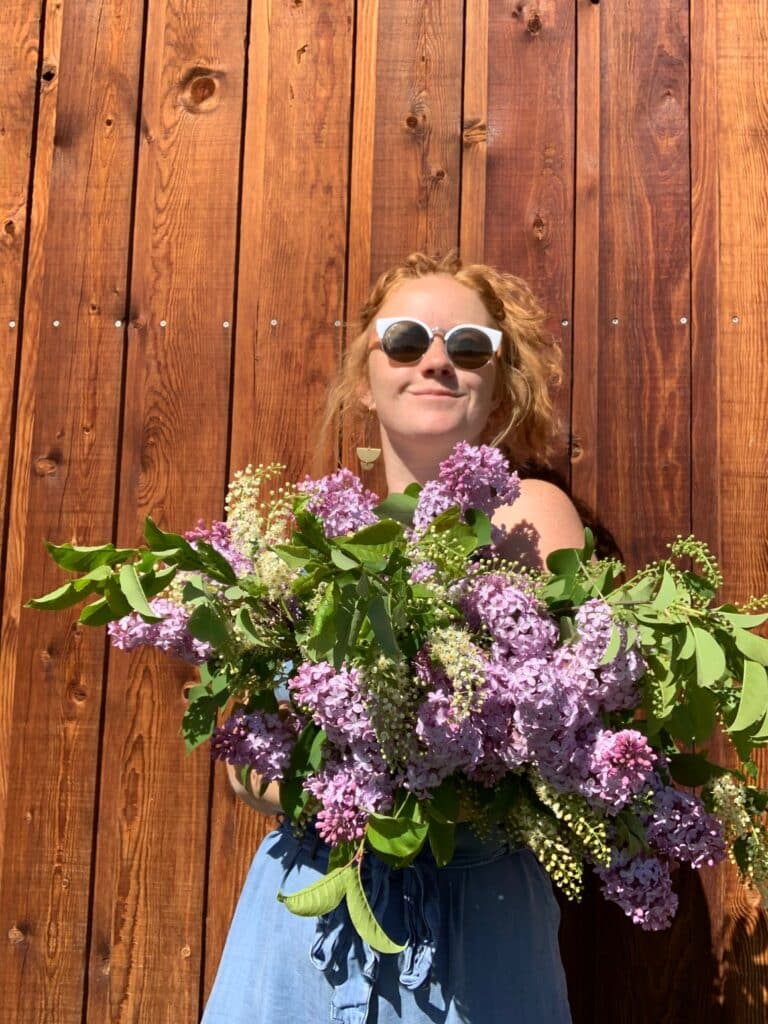
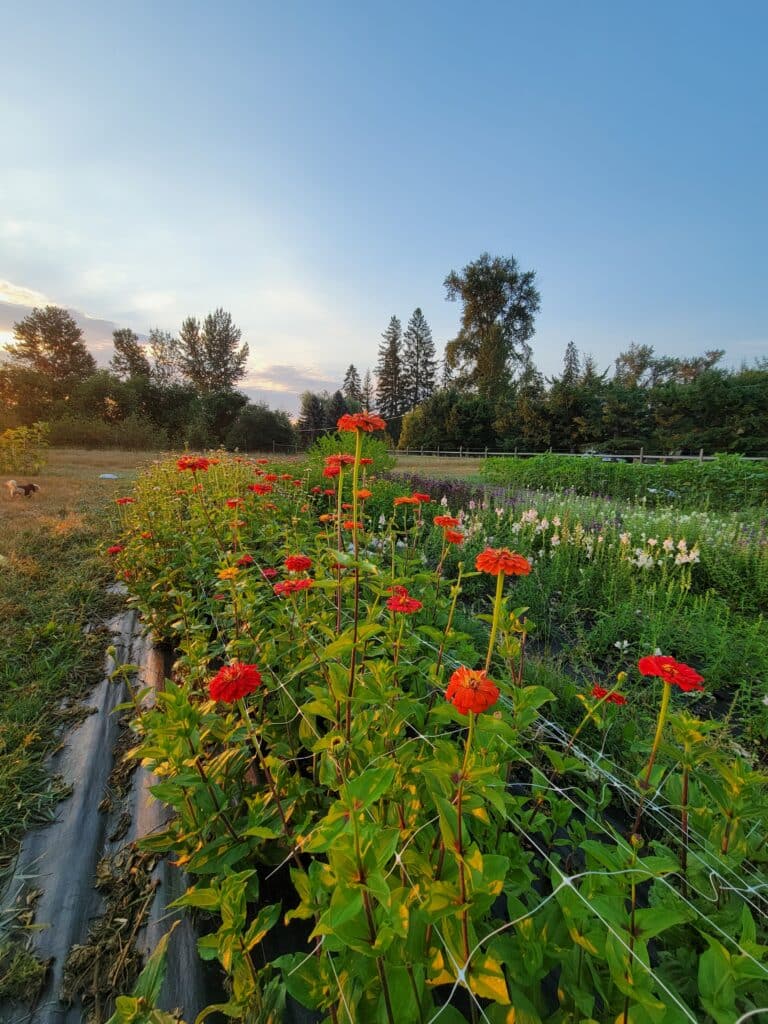
When I asked Althea, “So, why flowers? We don’t need flowers for our survival, so why a flower farm?”
She smiled and ran a hand through the new tulips and daffodils we were sitting beside and simply said, “We need flowers to remind us of the sweetness and magic of our everyday lives.”
She further explained, “Sure, we — our bodies — wouldn’t die without flowers, no, but perhaps our souls would. Flowers are so important to our culture that they have been intrinsically woven into our society as a way to celebrate, to mourn, to love, to communicate, and to provide beauty and nourishment, across all borders, religions, races and other human constructs. We, especially during difficult times, need something simple and sweet to bring us joy and connection. Flowers may not physically keep us alive, but they nourish our hearts and souls.”
Althea and I both wistfully looked off into the tulips and daffodils as they gently waved in the breeze coming in from the open door of the high tunnel. She was right: my heart and soul had been instantly soothed from the moment I’d stepped onto her farm and into her high tunnel, surrounded flowers.
The point is: flowers are magic, especially when they’re grown with such great love and care by one of your friends or neighbors.
You can find Althea and Phyllary Farm starting mid-June through mid-September, every Friday at the Farm for U-Pick Flower Fridays and at the Kalispell Farmers Market every Saturday.
For more information about Phyllary Farm, including their contact information, website, social media accounts, check out her Abundant Montana listing.
